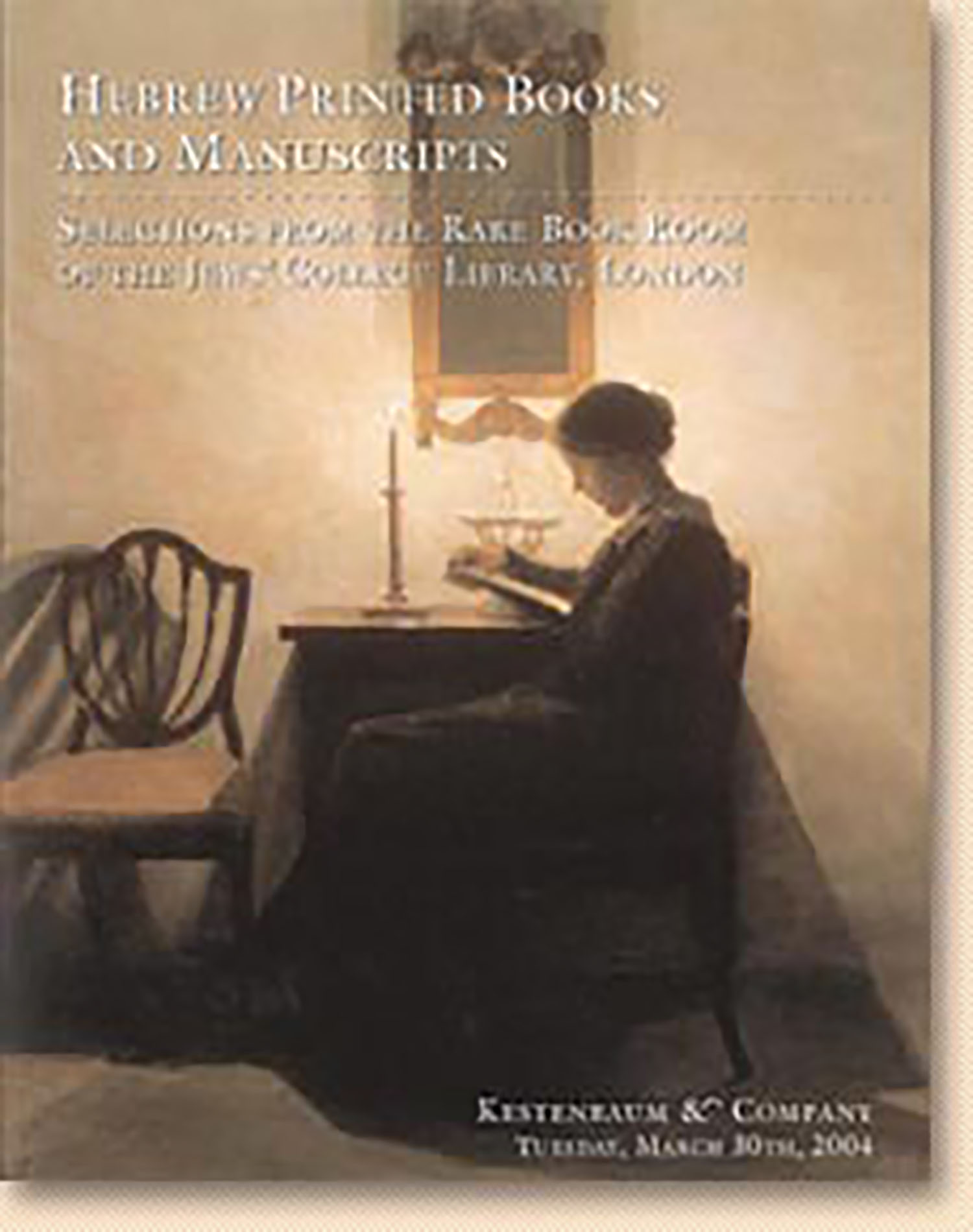Tephilah miko Hashanah [prayers for the entire year]

AUCTION 23 |
Tuesday, March 30th,
2004 at 1:00
Hebrew Printed Books & Manuscripts from The Rare Book Room of the Jews College Library, London The Third Portion
Lot 221
(LITURGY)
Tephilah miko Hashanah [prayers for the entire year]
Gelnhausen (Hesse, Germany): 1673
Est: $20,000 - $25,000
PRICE REALIZED $15,000
A SUBERB EXAMPLE OF A SEVENTEENTH CENTURY ASHKENAZIC PRAYERBOOK FOR THE COMMUNITY CHAZAN.
The scribe was Shimshon ben Yochanan Ha-Levi, who served as the Chazan of Gelnhausen and apparently wrote this prayerbook for his own use.
The manuscript is important for its indication of Ashkenazic prayer customs and rituals during the 17th century. For example, on f. 31a, in the Uva Le-Tzion prayer for Minchah on Sabbath, the Aramaic refrains starting with "Umekablin dein min dein" and "Unetalatni rucha" are highlighted in red. The present custom for the refrain of Kedusha Desidra in many conregations starts with different words. On f. 38a, in fine small script the scribe states that although many authorities instruct that the Chazan should say all the "Techinot’ before "Baruch She’amar " so as not to make an interruption before "Yishtabach," he has in fact not seen anyone who follows this custom. F.58a states that Psalms no. 79 and 83 are to be recited every day, a practice universally practiced only recently, at the behest of the Rabbinate of Israel. The final leaves contain various piyutim which were customarily said in Ashkenazic communities.
A FINELY WROUGHT AND USEFUL MANUSCRIPT.
